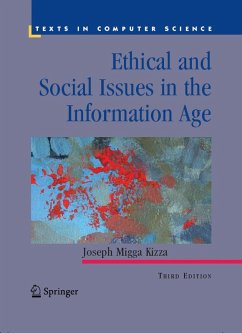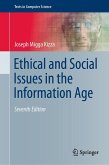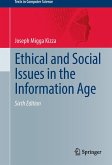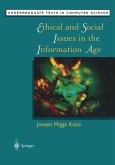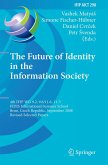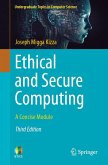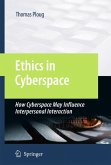This comprehensive third edition of the successful Ethical and Social Issues in the Information Age takes off where the second ended to examine ethical, social, and policy challenges stemming from the emergence of cyberspace, the convergence of telecommunication and computing technologies, and the miniaturalization of computing, telecommunication, and information-enabling devices. This accessible volume broadly surveys thought-provoking questions about the impact of these new technologies, with particular emphasis on the rapid growth of a multitude of computer networks, including the Internet. It assumes only a very modest familiarity with the basic computer literacy.
Topics and features:
. Describes how changes in information technology influence morality and the law
. Provides fundamental discussion of network-security system design and operation to reveal vulnerable areas in computer network infrastructure (NEW chapter)
. Surveys the history of computing and the evolution of computer crimes
. Explores biometric techniques to system access control (NEW chapter)
. Incorporates recent requirements for computer curricula
. Introduces and explores techniques in electronic crime investigation (NEW chapter)
. Assesses workplace concerns related to privacy, surveillance, and virtual offices
. Offers a pertinent discussion on civil liberties, harassment, and discrimination
. Contains chapter-ending exercises, and the author provides instructor classroom support materials and teachingguides at his website
This newly revised text/reference provides an updated discussion of the ethical and social issues that continue to evolve as computing and information technologies proliferate. Students at all levels who need to learn about computer ethics, the legal aspects of computing, network security, computer crime investigation, and biometrics will find this well documented work an invaluable resource. The book is also highly useful for practitioners needing such insights for their work.
Supplementary material can be found at: www.utc.edu/faculty/Joseph-Kizza
Dieser Download kann aus rechtlichen Gründen nur mit Rechnungsadresse in A, B, BG, CY, CZ, D, DK, EW, E, FIN, F, GR, HR, H, IRL, I, LT, L, LR, M, NL, PL, P, R, S, SLO, SK ausgeliefert werden.

